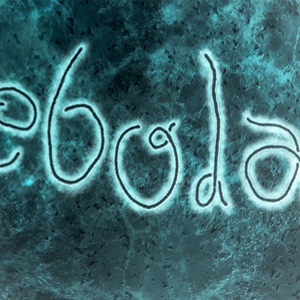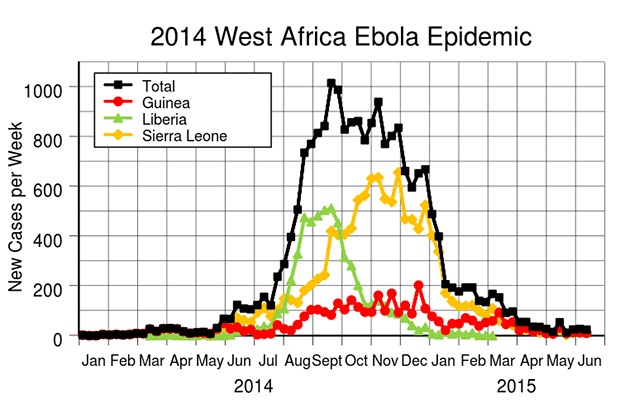
Liberia confirmed a third Ebola case on Thursday, nearly two months after it was declared Ebola free, and officials said they were investigating whether the disease had managed to lurk in animals before resurfacing.
Dr Moses Massaquoi, case management team leader for Liberia's Ebola task force, said the three villagers who had tested positive for the disease had shared a meal of dog meat, which is commonly eaten in Liberia.
"They come from the same time and have a history of having had dog meat together," he said.
The response team was investigating whether domestic animals might be carrying the virus, he said, referring also to mysterious deaths of hundreds of cattle in remote Lofa county.
Liberia, the country worst hit by the West African Ebola outbreak discovered last year, was also its biggest success story: the only one of the three hard-hit countries so far to be declared Ebola free.
The outbreak was declared over in Liberia on May 9 even as cases have continued to emerge in neighbouring Sierra Leone and Guinea. Liberia accounts for more than 4,800 of the 11,220 deaths in the West African outbreak.
The first new Liberian case, 17-year-old Abraham Memaigar, died on Sunday in the village of Nedowein in Margibi County, about 50 km (30 miles) from the capital Monrovia. Two others have since tested positive in the village.
"We have, as of yesterday, three confirmed cases," Deputy Health Minister Tolbert Nyenswah said on Thursday. "One expired, who was the 17-year-old boy ... The two live cases are 24 years old and 27 years old. They are stable."
None of the new victims are known to have traveled to Guinea or Sierra Leone, and Nedowein is far from the borders, leading to speculation that there could be hidden pockets of the virus or new means of transmission.
President Ellen Johnson Sirleaf voiced confidence that Liberia's Ebola taskforce would quickly bring the situation under control.
"There is no need to panic," she told Reuters on the sidelines of an official ceremony. "Our health team is on top of it. It will be contained."
Residents in Nedowein were baffled by the resurgence of the disease.
"An Ebola case being reported in the middle part of Liberia is confusing," said Adolphus Gbinee, Memaigar's uncle. "We do not have cases at our borders, not even in Monrovia. How could Ebola jump over those places and come here in Nedowein?"
Read: Ebola risk from animals higher than thought
Graph: West Africa Ebola Epidemic - New Cases per Week. Source: WHO

FEARS OF ANIMAL TRANSMISSION
A U.S. military operation that helped Liberia's government counter the outbreak has mostly withdrawn. But the Centers for Disease Control and Prevention (CDC), a U.S. health body, said it was working with authorities to study the origin of the cases and stop the virus spreading.
Some locals said Memaigar and others in the village had recently dug up and eaten a dead dog.
In past outbreaks, humans have been infected by eating monkey flesh, and a number of West African nations have banned the consumption of bush meat as a precaution.
Another possibility is that the virus survived among humans in remote areas. Ebola's symptoms are often muddled with other tropical diseases. A local clinic misdiagnosed Memaigar with malaria and gave him antibiotics and rehydration salts.
"There may still be clusters of EVD (Ebola) within Liberia that have been smouldering on without the knowledge of any authorities," Ian Mackay, a virologist at Australia's University of Queensland, wrote in his blog.
Ben Neuman, a virologist and Ebola expert at Reading University, said Ebola survivors, who can carry a small bit of the live virus in their bodies for months after recovering, might be responsible for the new cases.
"The new outbreak in Liberia is probably a rare reactivation that we are only seeing because there are so many Ebola survivors living in one place," he told Reuters.
Sexual transmission is another possible explanation. The virus can persist in semen for up to 90 days, versus 21 days in other fluids like blood or vomit.
Read: Man spreads Ebola via sex 5 months after cured
Nyenswah said health officials were monitoring 175 people believed to have come into contact with the three cases, though none had yet exhibited symptoms of the disease, which had been localized in the village of Nedowein.
"There is no further spread of the virus to any part of the country as we speak," he said.
Read more:




 Publications
Publications
 Partners
Partners











